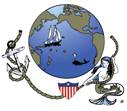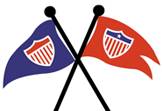Jon's Thoughts
This is just a random collection of my thoughts on Australia - mainly
observations that struck me as interesting. Subjects I've listed include:
Warnings against Smoking
Police and Speed Traps
Encroaching Government Officiousness
Australian Visa Hassles
Diminuization of Common Words
Warnings against Smoking:
I used to think that the US was pretty hip on the subject of anti-smoking,
especially compared to the rest of the world.
Cigarettes can't be advertised on TV, and all other advertising (magazines,
billboards, and the cigarette packs themselves) must have warnings on them.
|
The Surgeon General, in his infinite
wisdom, has decided that he thinks that perhaps
smoking cigarettes isn't actually that good blah, blah... |
| Typical US anti-smoking warning |
|
But the warnings in the US are actually kind of pathetic. Perhaps this is
because, in its infinite wisdom, the US government is actually
subsidizing tobacco farmers, and therefore the whole tobacco
industry! Is that crazy or what?!
Aussies are lots of things, but nobody can accuse them of being wimps.
Their anti-smoking warnings are a bit more direct. Here's a sampling:
|
|
A Stroke in a smoker is
rarely a stroke of bad luck |
|
|
|
See how
smoking causes blindness
(while you still can) |
|
We now know how many
cigarettes it takes to start
lung cancer - ONE |
|
|
The amount of tar an
average smoker inhales
in a year is breathtaking |
|
Cigarette smoke
harms children |
|
Smoking while pregnant
will hurt your baby |
|
What part of these do people not understand?
Maybe the US should take some lessons from Down Under...
Police and Speed Traps:
We drove about 11,000 km in Australia (about 6,700 miles or the equivalent
of 2.5 times across the USA). In all that distance
I think we saw 3 or 4 manned radar speed-traps. Instead, Australia relies
on automated sensors embedded in the road (like traffic light sensors) connected
to cameras to photograph your license plate. This must save money, but
it's a somewhat draconian form of Big-Brother watching over you. It
seems strange to me that freedom-loving Australians allow this. Is their
love of (saving) money stronger than their love of freedom?
In fairness, only in Melbourne were these cameras hidden, usually mounted on
the back sides of overpasses. Most automated speed-traps are supposed to
have big warning signs in front of them - often 3 of them! This, of course,
makes the motoring public slow down, which is actually a fairly effective way
for the police to enforce speed limits. I should add that in all those
11,000 km, I never ran afoul of one of these speed-traps (I checked!)
even though I tend to have a fairly heavy foot.
Australia is also the first place I've ever been breathalyzed - at 10am!
For a nation that likes its hard-drinking image, Australia has a 0.05%
blood-alcohol limit, almost 40% tougher than the 0.08% that's current in Washington
State. There is also an excellent government sponsored anti-drink-driving
(sic) campaign, with numerous TV spots and roadway billboards. This is
good, but why don't the police try to catch drunks in the evenings, as they're
driving home from the bar? OK, I'm usually not driving then so maybe I
just didn't see them, but 10am seems a strange time to look for drunk drivers
(although it's easy on the cops)...
Encroaching Government Officiousness:
For it's own reasons Australia likes following US trends, despite my
warnings that we've made lots of mistakes. Aussies have even
more rules than we do! An Aussie
once told us, "Here, if it's not regulated, it's bloody forbidden!"
This also seemed strange in this freedom-loving and free-spirited culture.
Many Australians we talked to remarked about this, but nobody seemed inclined to
do anything about it, so it just gets worse. After all,
government bureaucrats everywhere have to justify their sorry existences, and
that usually means pumping up their apparent importance as well as their
departments and turf.
Usually we just laugh at this sort of thing, but unfortunately
it's affecting the yachts. As of October 2006,
Australian entrance procedures will include a camera scan of the bottom of
visiting yachts. If they don't like what they see, they can order the boat
taken out of the water (at significant expense to the owners) to have the
situation checked and/or rectified. However, our officials outside Brisbane
were actually rather apologetic - they didn't like this added burden and said
all a boat has to do is wipe off their hull before clearing in, even if it's
done in Australian waters!
Almost all foods are illegal to bring in to Australia, but this is selectively
enforced. Friends had their boat basically cleaned out, while our officials
took very little. But we were still obliged to pay US$150/hour(!) for this
"service", and it's up to the quarantine officer how long they want to stay.
I can understand the Australians not wanting to shoulder the costs of dealing
with visiting yachts, but every other country
lets its citizens
shoulder those costs. Since I'm already paying those fees (via taxes) in
the US, it bugs me to have to pay them again in Australia. I wonder if
some officious government bureaucrat tried to get more officious but couldn't
get funding, so came up with this scheme.
Holding tanks are nominally required, especially in Queensland, but since there are
NO pump-out facilities this rule is generally not enforced. There are strict
regulations for haul-out facilities to contain both old and new bottom paint
(which, admittedly, is somewhat poisonous)
but nobody commented when we painted Ocelot's bottom (inevitably spilling some
paint) while sitting on the beach in Darwin.
In fact, Australian regulations are so onerous that several boats we know
bypassed Australia entirely because of them. I wonder if the Australian
Tourism department knows of this?
Australian Visa Hassles:
We don't usually need visas when we sail into a new country - the officials just
give them to us when we arrive - but Australia's different. When we
applied for Australian visas in New
Caledonia, they offered just 2 visas that might cover the 10-month period
that we needed - a 1 year multiple entry visa, and a 3 month electronic visa.
The problem was that the 1 year visa said it required birth certificates,
marriage certificates, death certificates, proof of boat insurance, medical
insurance, financial status, chest x-rays, and half a dozen other forms that we
don't carry on Ocelot for obvious reasons. (We later found that, while
these forms were requested, they weren't necessarily required. This
curious concept of a harsh exterior perception and a more gentle interior
reality marked many of our dealings with Australian officialdom.)
But the electronic visa, while initially free and extendable in 3 month
chunks for 1 year, cost $200/person/extension ($1,800 for the 3 of us to stay
over 9 months). When the consular official told me this, I asked her if
that meant they were giving me a $200/ticket discount to fly the family to New
Zealand so we could spend our money there, as it would then be free for us to
reenter Oz? To her credit, she replied that that was one way of looking at
it.
Not having the correct papers, we had to go with the 3 month electronic
visas, hoping we could change them when we got to Brisbane. But when we
got our passports back there were no markings in them at all. When we
asked for a receipt she said they don't give those out - "don't worry, you're in
the computer and they'll know all about it when you check in." Sure...
When we got to Brisbane Immigration's high-rise offices and they checked our
names in the computer, we were told that we already had 1 year visas! Now,
when a duly authorized official tells us that we already have that which we were
about to argue for, we were hesitant to disagree, but we did question him.
What happened to the bit about 3 months? After some consultation, he
replied that if we ever left Oz, we would only get 3 months upon
reentry. We asked about extending the visas and he replied that he
couldn't extend them if he wanted to!
We were happy, but still a bit skeptical, so we went back to Immigration no
fewer than 4 times over the next 3 months to verify what visas we had, and were
told the same thing on all occasions. I figured this was above and beyond
the call of "due-diligence" on our part.
But Darwin Immigration didn't agree. When we tried to clear out of
Australia they said we were 5 months in violation of overstaying our visas, even
though the last time we'd checked with Brisbane Immigration our visas had
already nominally expired and Brisbane hadn't said anything. We asked them
to call Brisbane to verify our story (the officials there would certainly
remember us) but Darwin wouldn't. It was beginning to sound like the kind
of story that only comes from third-world countries with corrupt officials, but
this was Australia!
After a couple hours of interrogation they accepted that it was an honest
mistake on our part and gave us temporary "bridging" visas until we left.
But they also put a black mark on our names in the Australian computer system
and told us we might have a problem if we tried to come back within 3 years,
even though it was the fault of the Brisbane officials! Oh, well, at least
we didn't have to pay the $1,800...
Diminuization of Common Words:
Australians have this curious habit of shortening (and usually diminuizing) many
words (like calling themselves 'Aussies' - maybe their country name is just too
long). Some of the terms we heard (and their nominal translations):
Footie (rugby football, which everyone is mad-keen about), barbie (BBQ), littlies
(children), pokies (poker gambling machines), coldie, stubbie, tinnie (3 terms for beers,
although a 'tinnie' can also be a small aluminum boat), bities (collective
terms for spiders, ants, snakes, etc.), chalkie (teacher),
rellies (relatives), crumblies (elderly parents), oldies (parents or
parents-in-law), mosies (mosquitoes), arvo (afternoon!), sickie (day's sick
leave - usually implying not sick), etc. This list is by no means
comprehensive - they're just the terms we heard most often.
Up | Brisbane | Coral Coast | Over the Top | Jon's Thoughts | Cruising Australia
| Australia Newsletters
Ecuador | French Polynesia | Kingdom of Tonga | Fiji | New Caledonia | Australia
Top Level:
Home |
Destinations |
Cruising Info |
Underwater |
Boat Guests |
Ocelot |
Sue |
Jon |
Amanda |
Chris |
Site Map |
Make a Comment
 |
Lifetime
Commodores
of the
Seven Seas
Cruising
Association |
 |
|
If our information is useful,
you can help by making a donation
|
Copyright © 2000‑ Contact:
Jon and Sue Hacking -- HackingFamily.com, svOcelot.com.
All rights reserved.

